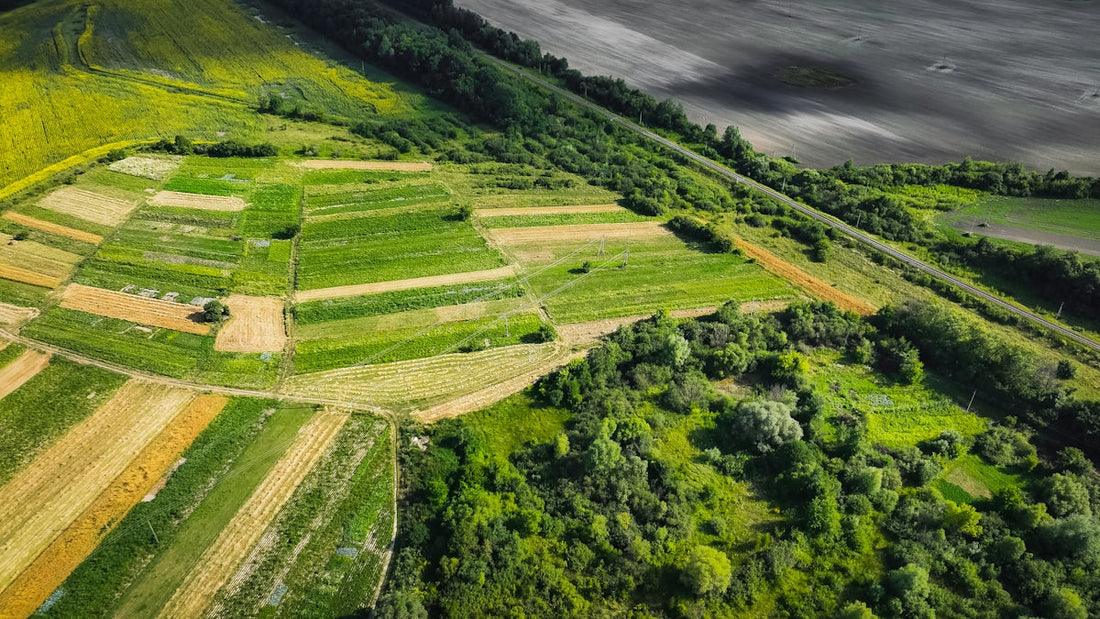
How Trump Tariffs Are Shaping Your Garden Planning Decisions in 2025
Share
In recent years, the complex web of international trade relations has had a profound impact on many aspects of daily life. For the urban family backyard farmer, understanding how macroeconomic policies such as the Trump tariffs influence garden planning decisions in 2025 can be crucial. These tariffs, initially introduced during the Trump administration, continue to shape the cost, availability, and choice of gardening supplies today.
The Impact of Trump Tariffs on Gardening Supplies
The tariffs have affected a range of products that are vital for garden planning. From the increased costs of imported seeds to the price hikes of gardening tools, understanding these changes is essential for anyone striving to maintain or expand their urban garden.
Seeds and Gardening Tools
The imposition of the Trump tariffs on agricultural products from countries like China has led to an increase in the costs of seeds. These tariffs were meant to encourage local production, but the immediate effect has been a price surge, making it more expensive to procure high-quality seeds. Urban family backyard farmers now find themselves exploring alternative sources, including local seed banks and heritage seed exchanges, to optimize costs and maintain garden diversity.
Moreover, gardening tools and equipment, often manufactured in tariff-affected countries, have also seen a price increase. This has resulted in urban gardeners seeking durable and efficient tools that can withstand the tests of time and frequent use.
Adapting Your Garden Plan
For urban family backyard farmers, planning is vital to make the most of the available space and resources. With increased costs due to tariffs, careful planning becomes even more critical.
Maximizing Space with Vertical Gardening
One way to adapt is by maximizing space through vertical gardening. This method not only saves space but also reduces soil usage and optimizes the growing conditions for many vegetables and herbs. It allows families to grow more produce within a confined area, making it a practical response to increased costs.
Investing in Durable Equipment
Investing in high-quality, durable equipment can save money in the long run, a crucial consideration given the impact of Trump tariffs. For instance, the Garden Iron Wood Wagon with Four Wheels – Red & White is a heavy-duty outdoor cart perfect for backyard tasks, offering longevity and reliability for hauling supplies around the garden.
The Role of Composting
Composting has become an essential factor in garden planning, especially in light of the increased costs of fertilizers due to tariffs on imported chemicals. By adopting composting, urban family backyard farmers can create nutrient-rich soil while reducing waste.
A great tool for this is the Tumbling Compost Bin Outdoor 360° Dual Chamber Rotating Composter 43 Gallon, Orange. This dual-chamber system allows for continuous composting, accommodating a steady supply of compost materials from kitchen scraps and garden waste.
Sustainable Practices and Self-Sufficiency
Moving towards sustainable gardening practices is another viable strategy. By growing a mix of seasonal crops and perennial plants, urban family backyard farmers can ensure a continuous supply of fresh produce while reducing the dependency on store-bought vegetables.
Implementing permaculture principles, such as crop rotation and intercropping, helps sustain the soil health and increases resilience against pests and diseases. These practices contribute to a more self-sufficient gardening setup, mitigating some of the adverse effects of higher costs arising due to the Trump tariffs.
Incorporating Livestock
Introducing small livestock, such as chickens, into the garden setup can also provide additional benefits. A backyard chicken coop can supply fresh eggs, and chickens can help control pests naturally.
The PawHut 59" Firwood Chicken Coop with Canopy – Secure Outdoor Hen House is an excellent choice for those looking to integrate this aspect into their garden planning. It offers secure housing for chickens, contributing to a more diversified and sustainable urban farm.
Transport and Mobility Solutions
For urban family backyard farmers dealing with increased prices and the need for efficient mobility, a reliable transport solution within the garden is essential. The Push & Pull Utility Folding Wagon with Removable Canopy offers an all-terrain solution for transporting garden supplies, enabling seamless movement of heavy loads without straining your back.
Conclusion
Trump tariffs have undeniably reshaped how urban family backyard farmers plan and maintain their gardens in 2025. By adopting strategic planning, sustainable practices, and investing in durable tools and equipment, gardeners can mitigate the negative impacts and continue to thrive. As the urban farming movement grows, these adaptations not only benefit individuals but also contribute to overall food resilience in urban areas.
For more insights on optimizing your backyard garden, visit Backyard Raise Grow and explore various resources and products tailored to support a flourishing urban garden.








